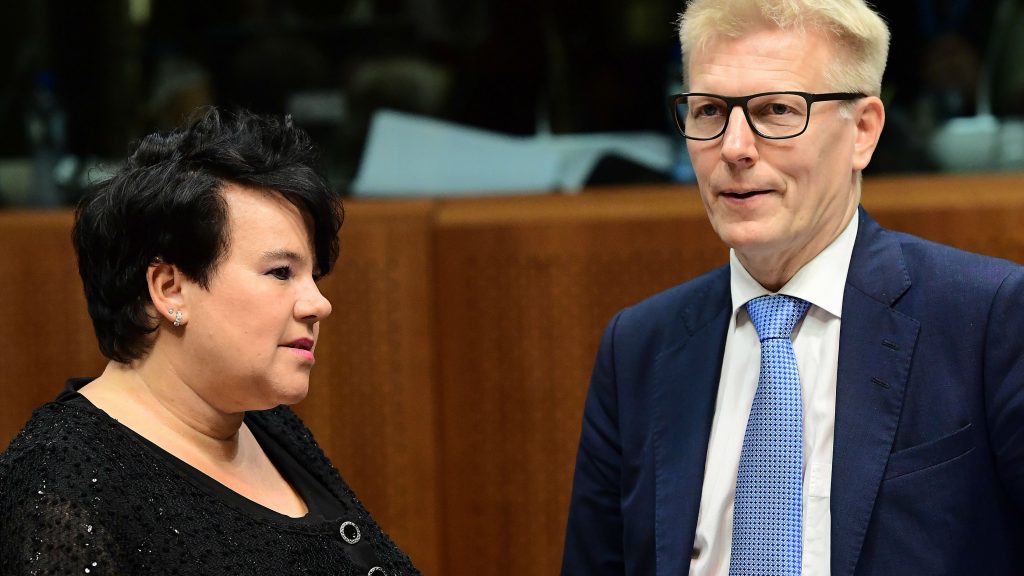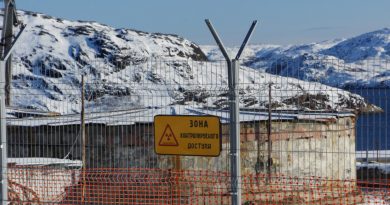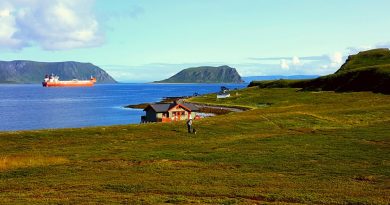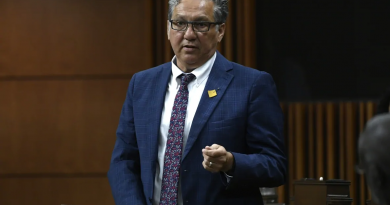Arctic environment ministers gather in Finland to tackle climate change, biodiversity & pollution

For the first time in five years, environment ministers from the world’s eight circumpolar nations are gathering as a group to explore solutions to some of the biggest environmental challenges facing the North.
The meeting was organized by Finland, the current chair of the Arctic Council, an intergovernmental forum made of up the world’s eight Arctic nations an six Arctic Indigenous groups.
“Finland as chair thought it was high time for environmental ministers to get together and discuss topical issues,” Finland’s Environment Minister Kimmo Tiilikainen told Eye on the Arctic in a phone interview.
“There really are urgent issues to discuss, for example fighting climate change and other environmental problems that are threatening our Arctic environment and societies.”
Tiilikainen’s words came Wednesday, the day before chairing the two-day Arctic Environment Ministers meeting in the city of Rovaniemi in northern Finland.
Besides the environment ministers, the meeting also includes the six Arctic Indigenous groups, referred to in the Council as the Permanent Participant organizations.
The Arctic Council’s six working groups, made up of experts from around the world to examine issues ranging from environment to emergency response in the Arctic, will also participate along with the Arctic Council’s Observers, made up of non-Arctic countries, non-governmental organizations and global or regional inter-governmental and intra-parliamentary organizations that have been permitted to observe the council’s work and contribute their expertise.
Year formed: 1996
Arctic Council Members: Canada, Denmark (Greenland), Finland, Iceland, Norway, Sweden, Russia, United States
Permanent Participants: Aleut International Association, Arctic Athabaskan Council, Gwich’in Council International, Inuit Circumpolar Council, Russian Association of Indigenous Peoples of the North, Saami Council
Current Chair: Finland (2017-2019)
Examining environmental threats
Meeting participants will discuss solutions to three of the Arctic’s most pressing environmental challenges: climate change, biodiversity and pollution prevention.
Arctic nations are already experiencing the devastating effects of climate change, said Tiilikainen, but the release of the Intergovernmental Panel on Climate Change (IPCC) assessment this week that underlined the “rapid, far-reaching and unprecedented changes” that society would need to undertake to limit global warming to 1.5ºC, has highlighted the urgency for the rest of the international community.
“Arctic nature is so fragile, those threats are even more serious than in the warmer latitudes,” Tiilikainen said. “The Arctic region is warming double the speed (of) the world average.
“The IPCC special report released a couple of days ago tells clearly that there’s no time to waste. ”
Meeting’s findings to be shared in 2019
The Arctic Environment Ministers meeting runs October 11-12.
A summary of the findings will the shared in May 2019 at the Arctic Council Foreign Ministers’ meeting, said the Arctic Council on their website.
The Arctic Biodiveristy Congress is also being held in Rovaniemi this week. Four-hundred and fifty experts are expected to attend to discuss conservation and the sustainable use of Arctic biodiversity.
The Congress is organised by Finland’s Ministry of Environment and the Conservation of Arctic Flora and Fauna (CAFF) Working Group of the Arctic Council.
Write to Eilís Quinn at eilis.quinn(at)cbc.ca
Related stories from around the North:
Canada: Thawing permafrost in Canada’s Northwest Territories releasing acid that’s breaking down minerals: study, CBC News
Finland: Scientists and leaders gather in Finnish north to talk Arctic biodiversity, Yle News
Greenland: Glacier half the size of Manhattan breaks off Greenland, CBC News
Iceland: Scientists puzzled by right whale’s appearance off Iceland, CBC News
Norway: Thawing permafrost melts ground under homes and around Global Seed Vault in Svalbard, The Independent Barents Observer
Russia: Arctic coastal town of Dikson is fastest-warming place in Russia, The Independent Barents Observer
Sweden: Warm temperatures lasting into autumn across Sweden, Radio Sweden
United States: New study predicts ‘radical re-shaping’ of Arctic landscape by 2100, CBC News



